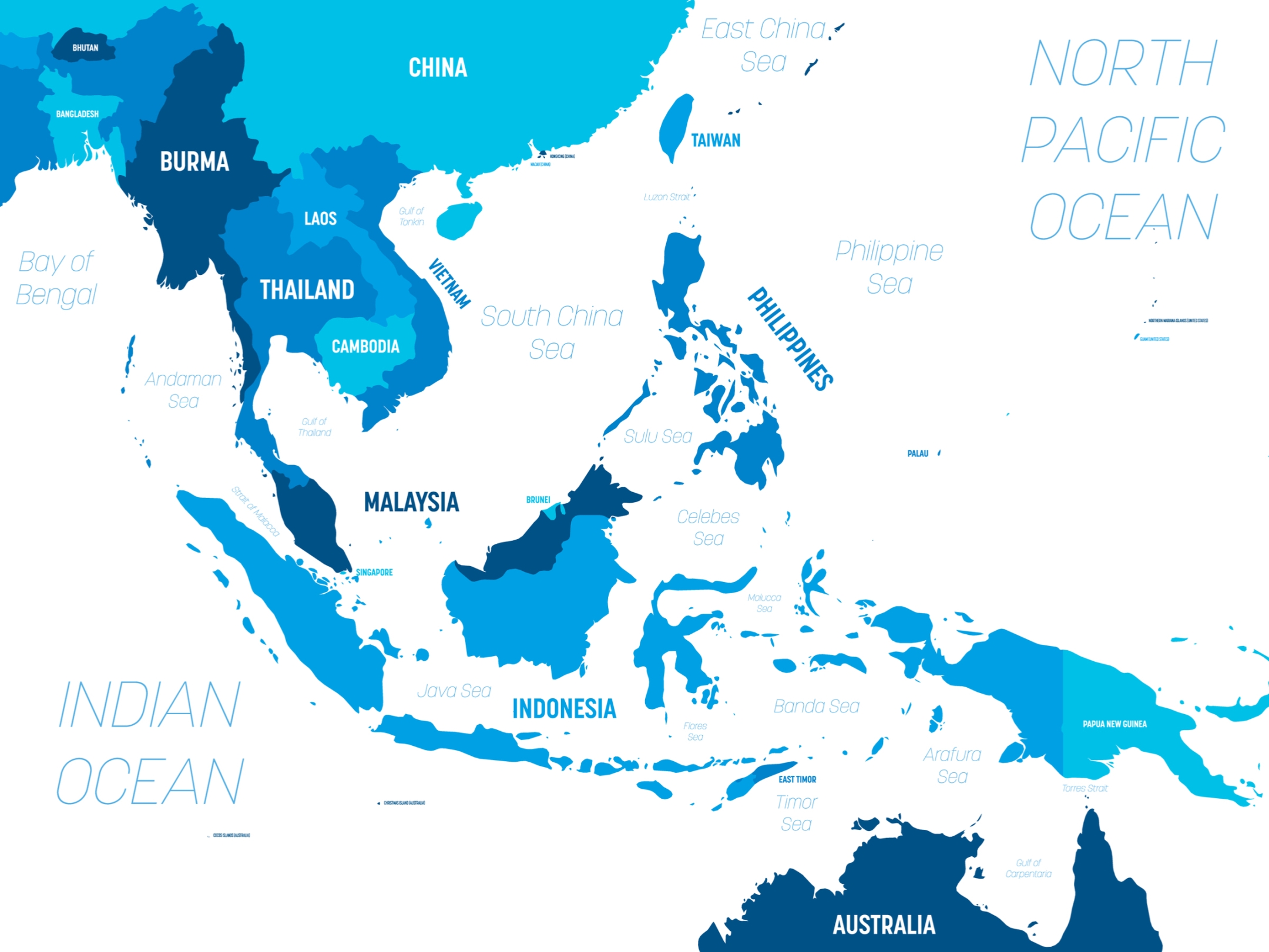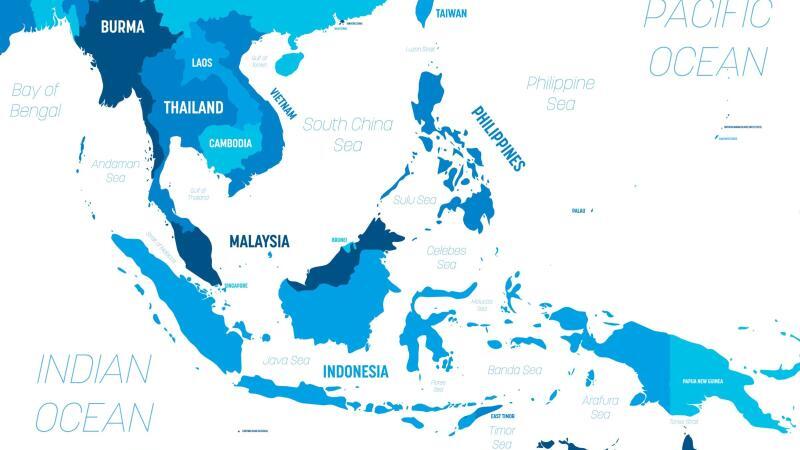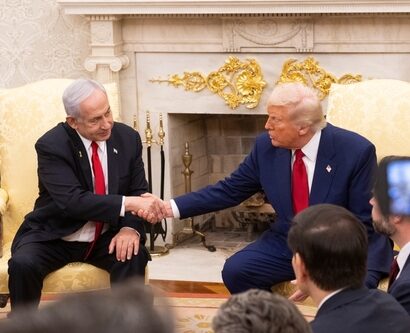Abstract: The EU unveiled its strategy for the Indo-Pacific to enhance its presence in the region and protect its vital security and economic interests. However, internal and external constraints severely limit the potentiality of the EU.
Bottom-line-up-front: The rise of China and other Asian countries, and the Sino-American rivalry have made the Indo-Pacific one of the most geopolitically relevant regions globally. As a result, the EU is determined to play a role in this region.
Problem statement: Can the EU be a strong player in the geopolitics and security of the Indo-Pacific?
So what?: With its current military capabilities, political structure and strategic culture, the EU is unlikely to be a decisive security actor in the Indo-Pacific. Nonetheless, the EU could manage to protect its interests through a civilian-based foreign policy.

Source: shutterstock.com/Pyty
In September 2021, the EU released its Strategy for Cooperation in the Indo-Pacific.[1] This long-awaited document follows similar initiatives of France, Germany and the Netherlands and outlines how the EU intends to achieve its policy goals in the region. The document is important considering that the Indo-Pacific has become increasingly important due to the return of China as a great power, and the geopolitical rivalry between the Asian country and the United States. This rivalry can be considered the most decisive in the world.[2] It involves the two most powerful countries, and its effects ripple across the international order. The economic and technological development of other regional countries, such as South Korea, Taiwan and India, further increases the strategic relevance of the Indo-Pacific, which counts for over 60% of the global GDP and world population.[3] In particular, the tensions between Taiwan and the People’s Republic of China are one of the major geopolitical hotspots in the world.[4]
The economic and technological development of other regional countries, such as South Korea, Taiwan and India, further increases the strategic relevance of the Indo-Pacific, which counts for over 60% of the global GDP and world population.
Therefore, the EU seeks to increase its Indo-Pacific presence to protect its economic and security interests. The Strategy lists seven priority areas over which it will focus: sustainable and inclusive prosperity; green transition; ocean governance; digital governance and partnerships; connectivity; security and defence; human security.[5]
This paper will analyse the Strategy’s domains of security and geopolitics. The EU’s main goal regarding security is to have a meaningful naval presence in the region to provide maritime security and keep sea lanes open, ensuring its economic interests are preserved, and the regional balance of power is maintained.[6] The EU has additional goals to expand defence partnerships, joint activities and collaborations with countries such as India, Japan and South Korea. The EU understands that it can play a meaningful role in the region if it has local support. Particular focus will be given to strengthening the ASEAN architecture and to the security of the Indian Ocean.[7] While ASEAN has many similarities to the EU as both emphasise multilateralism and inter-state dialogue, the Indian Ocean is crucial to European economic interests. However, the Strategy does not name any specific country as a potential threat or a security challenge. Despite this omission, tensions about China’s economic and military growth are likely to be the main security challenges. While China does not pose a direct military threat to Europe, the EU is concerned about the “intense competition” and “significant military build-up” in the South and East China Sea and in the Taiwan Strait which “may have a direct impact on European security and prosperity”.[8] Such a scenario, in fact, might lead to a conflict in the Indo-Pacific which could cause trade disruptions and regional instability with potential repercussions for Europe. Thus, considering the economic exposure of Europe to the region and the benefits from the current international order, the EU wants to have a security presence in the region to guarantee its interests.
However, the Strategy does not name any specific country as a potential threat or a security challenge. Despite this omission, tensions about China’s economic and military growth are likely to be the main security challenges.
However, there are doubts about the feasibility of EU goals, specifically regarding the EU’s capacity to act as a relevant regional security actor. Such criticisms have two key motivations. The first concerns the non military and economic-centric foreign policy adopted by the EU, which historically does not prioritise the deployment of security means. This is reflected in the Strategy, which avoids a confrontational language and it makes several references to the necessity of engaging diplomatically and seeking collaboration within bilateral and multilateral frameworks. As a case in point, the Strategy’s title has the keyword “cooperation” to highlight the nature of the EU’s foreign policy. Such an approach might put the EU at a strategic disadvantage when confronting other countries which deliberately use military means to achieve their geopolitical goals. It could be described in the words of the former German foreign minister Sigmar Gabriel: “in a world full of carnivores, vegetarians have a very tough time of it”.[9] Finally, even if EU member states were to agree to deploy forces, the EU has not specified the details of such deployment. Considering the limited military capacity of the EU in comparison to regional powers’ , there are legitimate reasons to doubt about the strategic and operational efficacy of the EU naval presence. This aspect is further exacerbated by a decline in the number of warships operated by European states.[10] Besides, as Europe’s core security and economic interests are in its neighbourhood, it is unlikely they will deploy a consistent naval force in the Indo-Pacific.
The recent AUKUS defence deal between the US, UK and Australia, which was a major diplomatic blow to France’s ambitions in the region, illustrates the challenges Europe faces in the Indo-Pacific.[11] In addition, considering the security threats and instability in the EU neighbourhood, Brussels risks overextending itself through ambitions and goals without the necessary means and capacities to achieve them. Overextension could render the EU incapable of fulfilling its commitments in both areas, which, may diminish its overall security and credibility. Hence, some pundits, such as Jonathan Holslag, argue the EU should not spread its limited resources but it should focus closer to its region where it can act more effectively.[12]
Whilst Holslag and others like him have a point, there is a counterargument to be made regarding criticisms of EU ambitions, and this should be considered. Concerning the anti-militaristic strategic culture of Europe, scholars such as Andrew Moravcsik, believe that this characteristic does not constitute a weakness but a point of force that has proven successful several times in the past.[13] According to this view, instead of using military means that hardly achieve geopolitical goals as the US’ experiences in the Middle East illustrate, the EU’s preference for diplomacy, multilateralism, international law and economic leverage is a better solution in the long term. This way, the EU could better protect its interests by cooperating with the regional countries and gaining their trust.
The EU intends to speak with a single voice in order to guarantee its security and economic interest in the region.
Overall, the EU Strategy for Cooperation in the Indo-Pacific is an ambitious document that sets out the fundamental building blocks for the EU’s engagement in the Indo-Pacific. The EU intends to speak with a single voice in order to guarantee its security and economic interest in the region. However, while it is unlikely for the EU to act as one of the main security providers in the Indo-Pacific due to its current capabilities; its civilian approach could turn out to be an alternative solution to achieve its goals.
Stefano Marras is a double masters’ graduate in History at the University of Bologna and International Relations at Utrecht University. Research interests include History, IR Theories, Geopolitics, European Security and Foreign Policy and Emerging Technologies. The views contained in this article are the author’s alone.
[1] European Commission – European Commission, “EU and Indo-Pacific: Natural Partners,” Text, retrieved December 13, 2021, https://ec.europa.eu/commission/presscorner/detail/en/ip_21_4704.
[2] John Mearsheimer, “The Inevitable Rivalry,” November 16, 2021, https://www.foreignaffairs.com/articles/china/2021-10-19/inevitable-rivalry-cold-war.
[3] Mohammad Masudur Rahman, Chanwahn Kim, and Prabir De, “Indo-Pacific cooperation: what do trade simulations indicate?,” Journal of Economic Structures 9, n. 1 (6 July 2020): 45, https://doi.org/10.1186/s40008-020-00222-4.
[4] Ispi, “Geopolitical Hotspot to Watch 2021: Taiwan,” Text. ISPI, December 26, 2020, https://www.ispionline.it/en/publication/geopolitical-hotspot-watch-2021-taiwan-28807.
[5] European Commission – European Commission, “EU and Indo-Pacific: Natural Partners,” Text, retrieved December 13, 2021, https://ec.europa.eu/commission/presscorner/detail/en/ip_21_4704.
[6] Ibid.
[7] Ibid.
[8] Ibid.
[9] Auswärtiges Amt, “In a World Full of Carnivores, Vegetarians Have a Very Tough Time of It,” German Federal Foreign Office, retrieved December 13, 2021, https://www.auswaertiges-amt.de/en/newsroom/news/gabriel-spiegel/1212494.
[10] IISS, “European Defence Policy in an Era of Renewed Great-Power Competition,” retrieved December 13, 2021, https://www.iiss.org/blogs/research-paper/2020/02/the-future-of-european-defence.
[11] “Aukus: UK, US and Australia Launch Pact to Counter China,” BBC News, September 16, 2021, par. World, https://www.bbc.com/news/world-58564837.
[12] EUobserver, “[Opinion] The EU’s “backyard” Is Not in the Indo-Pacific,” retrieved December 13, 2021, https://euobserver.com/opinion/152997.
[13] Andrew Moravcsik, “Why Europe Wins,” Foreign Policy (blog), retrieved December 13, 2021, https://foreignpolicy.com/2020/09/24/euroskeptic-europe-covid-19-trump-russia-migration/.






